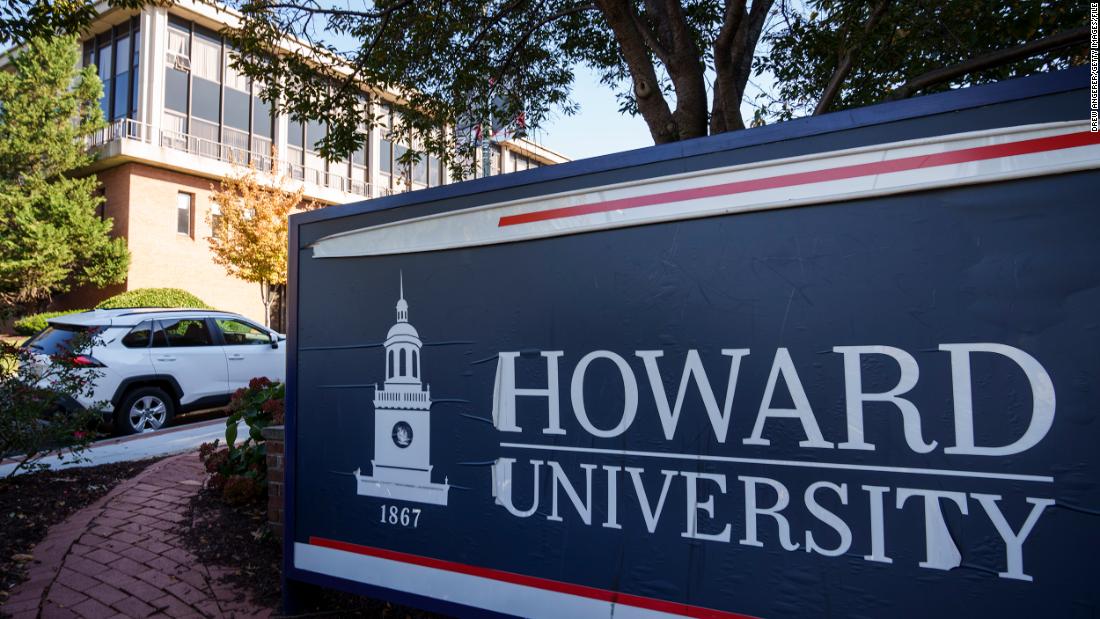Early Friday morning, two on-campus residence halls that can accommodate more than 1,800 students, the East and West Towers, were evacuated following an anonymous bomb threat at the school in Washington, DC. Students could be seen gathered at various locations near and around campus in their pajamas as they waited for the green light to return to their dorms.
On Tuesday evening, another residence hall, Cook Hall, was evacuated due to a bomb threat received by telephone. In both cases, students residing in the dorms were assigned to safe areas until a green light was announced hours after the initial threats.
“I want to be clear on the university’s position on the narrative of these threats,” Frederick wrote. “It’s not about resilience and courage. We need additional resources from all law enforcement agencies to address this ongoing threat and bring to justice those who perpetuate its effects. negative.”
Since the investigation began six months ago, no arrests have been made, and HBCU students and principals say they are frustrated with the lack of progress.
“We remain concerned about any threats to our college and our community and want to ensure that the safety of our institutions and our students is considered an equal priority to any other security threat,” said Helene Gayle, president of the Spelman College in Georgia. “We look forward to learning more about how law enforcement officials are handling these issues.”
CNN has reached out to other HBCUs that have received bomb threats this year, including Howard University, Fort Valley State University and many others, for comment.
The FBI, in a statement, told CNN last week that the investigation into the bomb threats was continuing and that it was working with more than 30 FBI field offices “across the country to pursue leads and identify those responsible for these criminally and racially motivated threats of violence.”
“The FBI takes all threats seriously, and we regularly work with our law enforcement partners to determine their credibility and keep our communities safe,” the FBI statement said. “As students across the country begin to return to school, the FBI is reminding that making a threat is a crime and those who post or send threats may face federal, state or local charges.”
Students say they are ‘not surprised’
Jy’Mir Starks was in his dorm with his roommate at Howard University when he heard the news of a bomb threat in February. Six months later, he was shocked to learn that another bomb threat had been issued against a university residence on Tuesday.
“I can only imagine it must have been scary because it was targeting Cook Hall, which is a male freshman dorm, and the students were evacuated, which was probably shocking as it’s our first week of classes. “said Starks, a junior. said.
Rebecca Beavers, a senior at Morgan State University in Maryland, said the fact that no one has been arrested in connection with the bomb threats is chilling because someone could threaten schools again.
“I didn’t know who made the threats, but something told me that if they were targeting only HBCUs, it definitely felt targeted at black students, almost like they wanted to scare us away from continuing our education,” he said. said Beavers.
Going into the first week of classes earlier this week, she said she wasn’t too concerned about the February threats, but they were definitely looming in her mind.
Netanya Onyilo, a sophomore at Spelman College in Georgia, said she felt the threats had been forgotten nationally, adding that she thought there was a lack of concern because the HBCUs were targeted.
“Because we are HBCUs and we are not [predominantly White institutions], we are considered less important. The fact that they don’t react so quickly is very telling,” Onyilo said.
CNN has contacted the Education Department for comment.
Last week, the Southern University Law Center in Louisiana announced that it was the first HBCU to receive a grant from Project SERV. A university spokesperson told CNN the grant was $133,200 and would be used to conduct a series of questionnaires to assess the mental health consequences of the bomb threat.
From the bomb threats that occurred in February at HBCUs to those that occurred at Howard University this week, Starks said students are becoming desensitized to threats of violence. The day after Tuesday’s threat, the campus environment seemed no different and everyone went to classes and various campus events as if nothing had happened the night before, he said. .
“If this is going to become normalized to where we’re going to get bomb threats, does that make you wonder like if one day it won’t be a threat?” Starks said. “There’s desensitization, and then there’s reality. I don’t think any of us understand real reality, myself included.”

